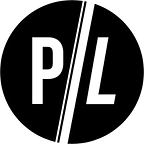Where is the news?
by Vincent M.
It’s been about a month since the Charlie Hebdo shootings: a horrific terrorist incident that resulted in numerous deaths, including that of the infamous satirical editor Stephane Charbonnier, a.k.a. Charb. The incidents were blamed on reactions to derogatory comics depicting the Islamic prophet Mohammad. The acts sent immense shock-waves around the world, including a message from Al-Qaeda proclaiming no one—not even first world countries—could escape its grasp.
Ironically, this event led to a more unified fight against terrorism in the Middle East, where the 3.7 million strong rally in Paris demonstrated anti-terrorist support. Many strongly phrased messages from world leaders condemned the shooting and expressing their grief for the victims.
The role of media was enormously significant in every step of the shooting. Its ability to rapidly publicize the event, especially regarding the #JeSuisCharlie trend on social media, allowed support to grow at an astounding rate.
Regardless, what I find so appalling, is that 2000 civilians who were massacred in Nigeria in Boko Haram’s deadliest attack failed to receive the extent of coverage Charlie Hebdo had—if not more. Not only is Boko Haram an extremist Islamic militant group just like Al-Qaeda, but there were approximately 200 times the deaths observed in Paris, along with 1.5 million people displaced from their homes to escape the migration of violence gradually engulfing their country. The two incidences happened within a similar timeframe, so why did one event — comparably less detrimental in terms of loss of life — gain more coverage than the other?
Early January, I would receive constant updates of the Charlie Hebdo terrorist acts as they unfolded. Every day from the news, or Facebook, or Twitter —anything that updated in real time, really — alerts would come in briefing me on the latest theories and discoveries. Practically everyone with an internet connection came across news of the Paris shootings.
Yet I couldn't say the same of the Boko Haram massacres — not a peep about Nigerian deaths until a full week had passed since its occurrence. And it was nowhere as “important” or “newsworthy” — it didn't make “breaking news” status; rather it was just kept as a short link off to the side of the news site.
So why didn't the media focus on such atrocities? The lack of coverage is a brutal wakeup call. I narrowed down to a few factors possible reasons as to why mass media didn’t headline constantly with Boko Haram:
1. Perhaps it was too difficult/dangerous to cover—third world countries are constantly being attacked by militants (Boko Haram) and investigating the ordeal would be unsafe for journalists.
2. Perhaps because France is considered a first world country, it is given priority in the media.
3. Simply, the media doesn't believe Nigerian lives are equally as important as French lives.
However, the Middle East has been a hotspot for acts of violence and terrorism, and obviously there have been reporters and journalists who've flown down to Syria and Iraq to cover the battles in progress—even through heavy violence and high risk. Brief, shaky clips can often be viewed on BBC daily world news video updates.
If the mainstream media actually cared to report on the terrorism in Nigeria, I would like to believe people in turn would have concern when actually exposed to the horrific events erupting outside their comfortable, Northern Hemispheric worldviews.
The media tends to donate its resources and analysis towards regions it deems more “significant” — Paris is obviously a wealthy cultural hub in a country known for its support of free speech — so thus, an opportunity seized early by the news to capitalize on any disruption of democratic values. Conversely, the media turns a blind eye to poorer, economically/politically unstable areas that do little to support strong money-making narratives — the Western gaze glosses over the extent of violence present on Earth and instead nurtures the eruption of non-democratic violence in its capital to seem like the only truly detrimental crime to humanity. What the media chooses to let us see also affects how we will react to terrorist acts, at home and abroad. The impingement of terrorism on the Parisian cartoonists was horrifying to media consumers — what unjust violence against peaceful White first-world innocents! Whereas it’s only too easy to imagine militants going at it in an unstable African state… to the point where desensitization is an easy diagnosis and clicking away to that emotionally moving article about 36 questions leading to Modern Love is the obvious prognosis, for the most part.
Charlie Hebdo writers and editors who survived have received colossal amounts of assistance financially and most notably, global support—allowing them to continue exercising their freedom of speech as satirical cartoonists, despite publishing deeply, blatantly Islamophobic material.
On the other hand, the fight against Boko Haram in Nigeria garnered recognition on a scale infinitely less explosive than that of the Parisian shooting, with only a handful of groups intervening and aiding the Nigerian peoples (Amnesty International, the UN).
I understand that it is important to cover acts of terrorism in a place like France where terrorism hardly occurs, but in a country like Nigeria where such havoc and chaos happens on a daily basis, I believe they require just as much help, if not more to overcome their vast internal problems. Perhaps if the media gave just as much coverage as the Charlie Hebdo shootings on other world events, for example the Boko Haram massacre, then maybe people could start another hash tag trend, raise money and ultimately generate support, positively impacting the world in a much more significant way.
